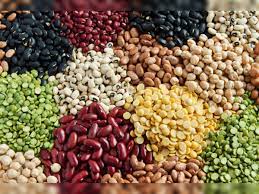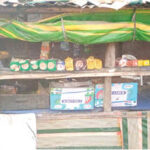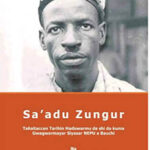Oxfam Nigeria, International Crops Research Institute for the Semi-Arid Tropics (ICRISAT) and the International Maize and Wheat Improvement Center (CIMMYT) have called for a shift from the continuous distribution of free seeds to a more sustainable approach that empowers communities to produce their own seeds.
They made the call at a one-day roundtable dialogue with humanitarian actors and stakeholders on Wednesday in Abuja.
The Oxfam Nigeria Country Director, John Makina, said while free seed distribution is often carried out with the best intentions, it has inadvertently caused some market distortions, created dependency among farmers, and introduced unsuitable crop varieties.
He said: “This project aims to rectify these issues by empowering local farmers and their organizations to produce, test, and disseminate diverse and adaptable seed varieties, fostering a sustainable and resilient agricultural system.
“In Bauchi and Jigawa states, where this project is being implemented, farmers now have access to five new diverse varieties of millet and sorghum. This success is due to the rigorous testing of ten different varieties in 20 community farmer field school demonstration plots.
“These achievements highlight the effectiveness of participatory variety selection and underscore the importance of involving farmers directly in the decision-making process,” Makina said.
He said the goal is to establish a resilient and self-sufficient seed system in the project regions so as to ensure long-term food security and agricultural sustainability.
He said, “Together, we will raise awareness about the benefits of empowering farmers to collaborate with breeders and humanitarian actors. This collaborative effort is essential to strengthening local seed systems and enhancing agricultural resilience. Let us stay committed to our shared vision of sustainable development and resilience building.”
The ICRISAT Nigeria Country, Representative, Agarawai Ignatius, said to mitigate climate risks, there is a need to have crop diversity on the farmland, coupled with improved seed quality, to enable farmers to avoid losses due to insects, dry land, or drought.
He said, “Apart from that, there are also challenges of insecurity in some of these fragile areas, which often lead to attacks on farmers, creating opportunities for humanitarian actors to see how they can make seeds available to those farmers.
“Crop diversity in West Africa aims at developing seeds at the local level, especially through the community-based system, which broadens the concept of farmers learning all the techniques about different crop varieties and seeing which ones are adaptable to their particular environment.”

 Join Daily Trust WhatsApp Community For Quick Access To News and Happenings Around You.
Join Daily Trust WhatsApp Community For Quick Access To News and Happenings Around You.


